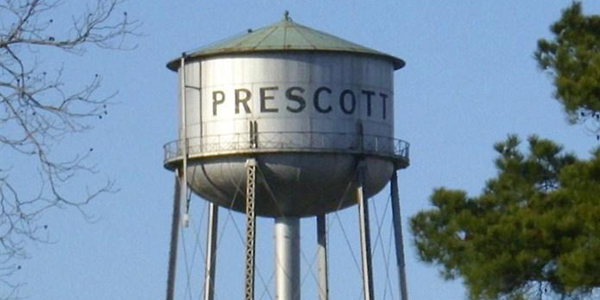By Tom Kleckner
FERC last week established briefing procedures for MISO and SPP as it investigates potential “overlapping and/or duplicative” congestion charges being imposed on pseudo-tie transactions between the RTOs (EL17-89, EL19-60).
The commission is looking into Tariff, contract provisions and practices imposed by the RTOs on pseudo-tie transactions in response to complaints under Section 206 of the Federal Power Act by American Electric Power’s Southwestern Electric Power Co. subsidiary (EL17-89) and the Arkansas city of Prescott (EL19-60).
The RTOs admitted that in “limited circumstances,” congestion charge overlap occurs on pseudo-tied transactions involving certain flowgates coordinated under their market-to-market (M2M) process. MISO said the overlap is “due to the independent application of the [M2M] process” under their joint operating agreement and their congestion-management provisions. SPP acknowledged that when M2M constraints are bound in more than one market, “it is reasonable to conclude that some overlap may occur in the congestion settlements … for pseudo-tied assets.”
FERC granted the complaints on the overlapping and duplicative congestion charges and ordered the RTOs to file initial briefs within 45 days. The commission asked them to address:
- Tariff and JOA provisions that may allow overlapping congestion charges to be assessed;
- The specific circumstances under which congestion charges overlap;
- Revisions to the Tariffs, JOA or other documents or procedures that could eliminate overlapping charges;
- Existing tools or market products that pseudo-tied loads and resources can use to mitigate or eliminate overlapping charges;
- The status of discussions between MISO and its stakeholders on solutions to the congestion overlap; and
- Pseudo-tied loads or resources being assessed overlapping or duplicative congestion charges or vulnerable to overlapping charges.
SWEPCO’s complaint alleged that MISO violated the JOA with SPP regarding congestion charge assessments for its loads that are pseudo-tied out of MISO and into SPP. It said the charges resulted in an overpayment to MISO of $963,974 for one four-month period in 2016.
FERC said SWEPCO did not show MISO has violated the JOA, pointing to language in the grid operators’ congestion-management process that it said does not state or imply “that pseudo-tied loads … should be exempt from the congestion charges otherwise applicable under the RTOs’ individual tariffs.” The commission agreed with MISO that as a network service transmission customer, SWEPCO is subject to congestion and loss charges.
The commission did find that overlapping or duplicative congestion charges for loads pseudo-tied from MISO to SPP are unjust, unreasonable, unduly discriminatory or preferential. They established a refund effective date of Sept. 15, 2017.
Prescott’s Section 206 complaint against MISO and SWEPCO said its municipal utility system, which interconnects with Entergy Arkansas, saw its monthly transmission costs increase from $65,000 to $175,000 with Entergy’s integration into MISO in 2013 and the opening of SPP’s Integrated Marketplace in 2014. The city said its load, supplied by SWEPCO resources in SPP through a pseudo-tie, is assessed both MISO and SPP M2M congestion charges.
It also said MISO and SWEPCO “thwarted” Prescott’s efforts to secure power from other suppliers and asked permission to settle congestion charges based on day-ahead prices. The city also said SWEPCO had not hedged its congestion costs effectively, contrary to the power supply agreement (PSA).
FERC denied the complaint in part, saying Prescott had not shown SWEPCO and MISO thwarted its efforts and that it was “evident” MISO provided guidance to the city on its pursuit of alternative supply arrangements. The commission found SWEPCO did not have to grant Prescott’s request to change its supplier and declined to terminate the company’s role as Prescott’s agent.
The commission also said Prescott had not “persuasively shown” that FERC should direct MISO to allow pseudo-ties to settle financially based on day-ahead prices.
The city had asked for a $770,000 yearly refund from SWEPCO, dating back to the 2019 complaint, but FERC commission denied the request. It said Prescott’s request relied on a “misreading” of the PSA’s terms. The commission did agree the city’s load was subject to unjust and unreasonable duplicative congestion charges and established a refund effective date of April 5, 2019.
(See related story, “SWEPCO Settlement Approved,” FERC Order Briefs: Sept. 19, 2019.)




